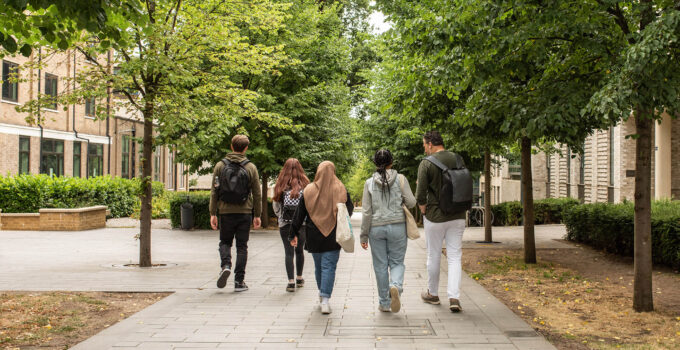Choosing the right accommodation is a pivotal decision for university students in Sydney, influencing both their academic and social experiences.
With options ranging from on-campus living to off-campus housing, students need to weigh the pros and cons of each to find the best fit for their needs.
Student Housing Australia offers various accommodations catering to these diverse preferences.
Page Contents
Overview of On-Campus Accommodation
On-campus accommodation includes residence halls, dormitories, and hostels managed by the university. These living arrangements provide a range of benefits, such as close proximity to classes, integrated social environments, and a structured setting ideal for first-year students.
Residence halls and dormitories typically offer furnished rooms with shared or private bathrooms, common areas for socializing, and easy access to university facilities.
Hostels may provide more basic accommodations but still offer the advantage of being on university grounds.
Overview of Off-Campus Accommodation
Off-campus accommodation encompasses independent rentals and purpose-built student housing provided by companies.
Independent rentals can range from shared apartments to private studios, offering a variety of living arrangements to suit different budgets and preferences.
Purpose-built student accommodations are designed specifically for students and often include amenities like study rooms, gyms, and social spaces. These options provide more freedom and privacy than on-campus living, with the opportunity to live in different parts of the city.

Source: amberstudent.com
Cost Comparison
The cost of living on-campus can vary widely depending on the type of accommodation and the university. Typically, on-campus housing includes utilities, internet, and sometimes meal plans, making it a more inclusive but often higher-cost option.
Off-campus living costs also vary, with independent rentals usually requiring separate payments for utilities and internet. Purpose-built student accommodations by providers like Student Housing Australia often include these in the rent, providing a middle ground in terms of cost and convenience.
Amenities and Facilities
On-campus accommodations often boast amenities like libraries, study lounges, gyms, and dining halls. These facilities are integrated into the student lifestyle, offering convenience and fostering a strong sense of community.
Off-campus options, particularly purpose-built student housing, provide similar amenities, including modern kitchens, laundry facilities, and entertainment rooms. Independent rentals might not offer the same level of communal facilities but can provide more personalized living spaces.
Privacy and Space
Privacy levels differ significantly between on-campus and off-campus living. On-campus accommodations often involve shared rooms or communal living spaces, which can impact personal space and noise levels.
This setup, while fostering social interaction, may not suit everyone. Off-campus housing, especially independent rentals, offers greater privacy with options for private rooms or entire apartments.
Purpose-built student accommodations also balance privacy and community, with individual rooms in shared apartments.

Source: ocha.facilities.columbia.edu
Social Life and Community
Living on-campus provides a built-in social network with numerous activities, events, and community engagement opportunities organized by the university. This environment is conducive to making friends and participating in campus life.
Off-campus living, while more independent, does not lack social opportunities.
Purpose-built student accommodations by providers like Student Housing Australia often organize events and have common areas for socializing. Independent rentals may require more effort to engage with the community but offer the chance to build relationships with a diverse group of neighbors.





